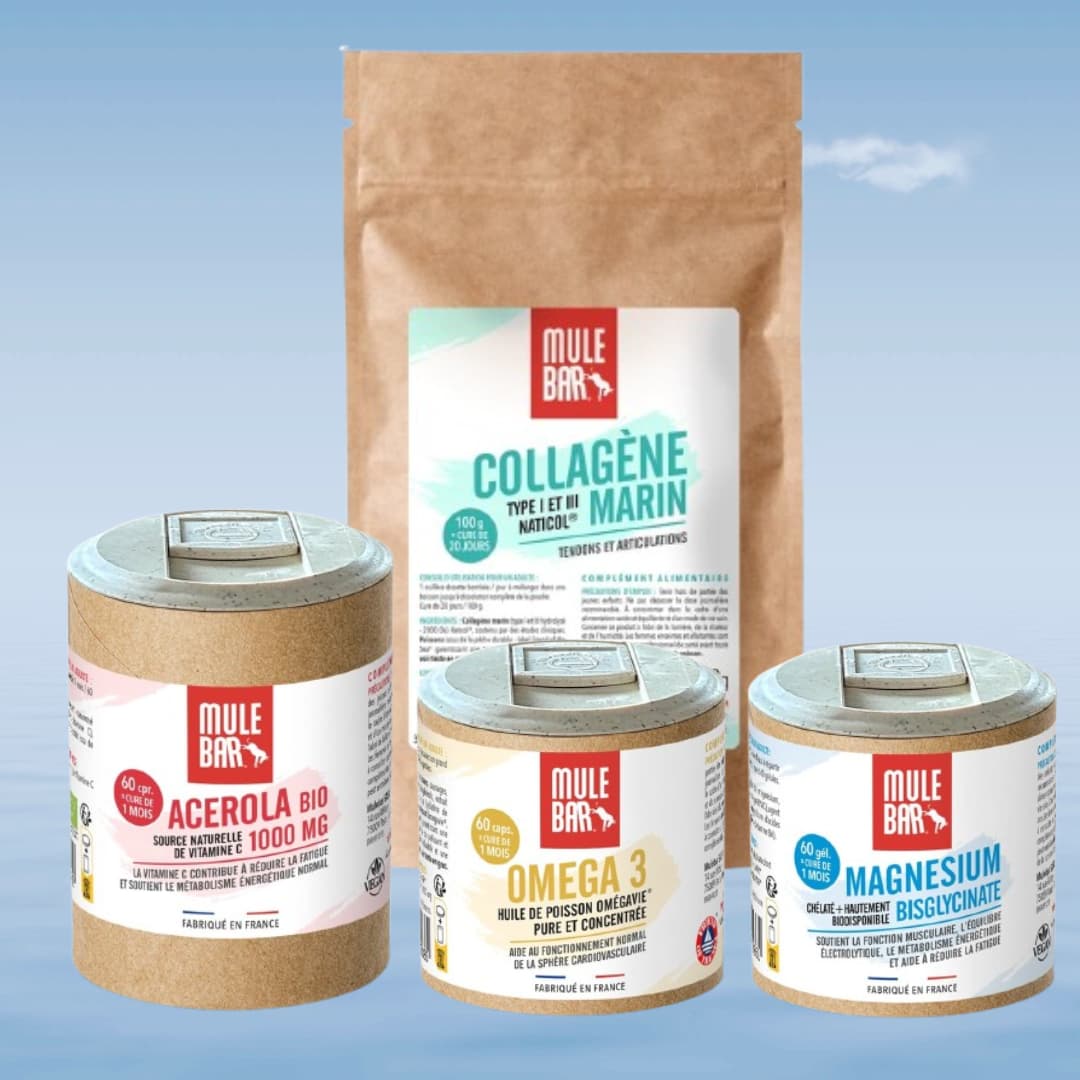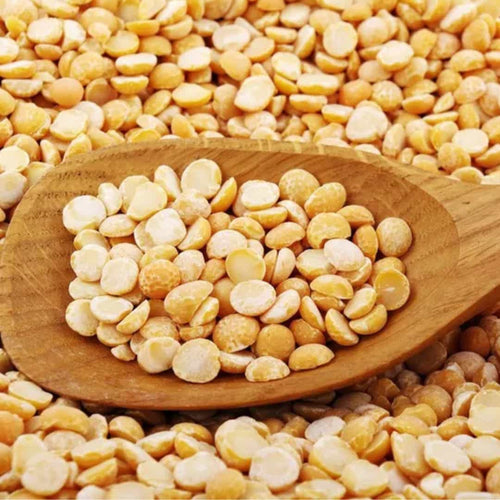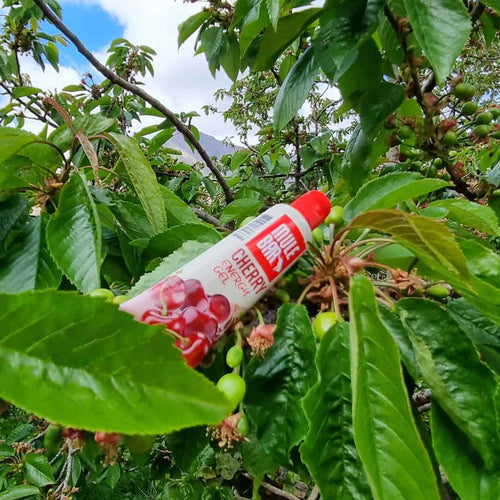Protein products are now a huge and fast-growing category within sports nutrition. Some athletes use them to build muscle, while others use them in smaller quantities to rebuild muscle after exercise - these are known as recovery products. Manufacturers use different types of protein in their recipes, the most common being Whey protein, which comes from milk as its name suggests. Others opt for vegetable proteins such as pea or soya, which are easier to digest, or out of respect for animal welfare. Let's take a look at the benefits of pea protein for sport.
What is pea protein ?
Pea protein is generally extracted from yellow peas in powder form after drying, not from green peas. Yellow peas are an exceptional source of vegetable protein, nutrients and amino acids. It is recommended for use in sports, particularly bodybuilding.
Let's clear up any doubts straight away. Whole peas are known to cause bloating, but this is not the case with pea protein. So there's no risk of intestinal problems.
It has no noticeable taste, especially when mixed with fruit or flavourings. It is widely used by new plant-based meat brands.
All these good reasons explain why we chose, at Mulebar, to incorporate this protein into the recipe for our Mulebar Strawberry Almond 42g protein bar, which contains 11g of pea protein (25%).

Nutritional values of pea protein
This protein contains between 80 and 85% protein, a very high level. It contains carbohydrates and fibre, as well as vitamins E, D, K, A and minerals.
Pea protein has similar nutritional values to milk protein with the same protein content. However, it is not a complete source of vegetable protein, as cystine and methionine are missing from the nine essential amino acids.
This is not a problem, as many everyday foods contain them. If pea protein is one of your only sources of protein, then it would be worthwhile diversifying.
On the other hand, it does contain BCAAs, the famous Branched Chain Amino Acids, including 9% leucine, valine, isoleucine and 8% arginine. By way of comparison, whey protein isolate contains just 3%!
Is pea protein easy to digest ?
Pea protein is slowly digested. It helps you feel full so you don't feel hungry, even after several hours. Many people think that slow-digesting proteins are bad for the body... On the contrary!
This protein, like soya protein, is considered highly digestible and has an excellent PDCAAS score of 0.8. This defines the quality of a protein according to its amino acid content in relation to our physiological needs and our ability to digest it.
What are the benefits of pea protein ?
What are the health and sports performance benefits of pea protein ?
Muscle mass gain
Pea protein helps to build muscle mass, particularly during resistance training. In fact, it enables muscle fibres to become thicker during training. It is at least as effective as whey in improving physical function and sporting performance. It is an excellent plant-based alternative!
A better recovery
Thanks to its slow digestion, discussed above, pea protein promotes muscle reconstruction after exercise, also known as the recovery phase. It diffuses its amino acids slowly and over time to the muscles (damaged by micro-injuries to the fibres) so that they can rebuild during rest. Ideally, pea protein should be consumed in the evening to take advantage of its nocturnal benefits. Immediately after exercise, it is preferable to opt for a more rapidly assimilated protein source.
A healthy alternative to bone-damaging milk proteins
Pea protein is highly beneficial for the body. With its low fat content, it is ideal for those wishing to reduce the risk of cardiovascular disease.
Contrary to preconceived ideas manipulated by lobbyists, milk proteins are bad for your bones once you have passed the age of growth. They encourage osteoporosis. Vegetable proteins, on the other hand, help preserve bone density and strength.
A low glycaemic index for a slow release of energy
It contains carbohydrates but with a relatively low glycaemic index, making it an excellent source of slow-release carbohydrates perfect for endurance sports such as triathlons and ultra-trails.
After ingestion, it causes a slight spike in blood sugar levels, a very good point for diabetic athletes.
What are the disadvantages of pea protein?
There are no contraindications or side effects to consuming this plant protein. Allergies are extremely rare. This protein is suitable for everyone, including people on vegan, vegetarian or vegan diets. It is also highly recommended for people who are lactose or soya intolerant.
Pea protein is a vegetable protein with very interesting nutritional values. Even if it is not a complete source of plant protein, it is still an ideal alternative to milk protein. In particular, it allows vegetarian or vegan athletes to diversify their protein sources. Its slow digestion makes it a serious asset for muscle rebuilding!






Leave a comment
This site is protected by hCaptcha and the hCaptcha Privacy Policy and Terms of Service apply.